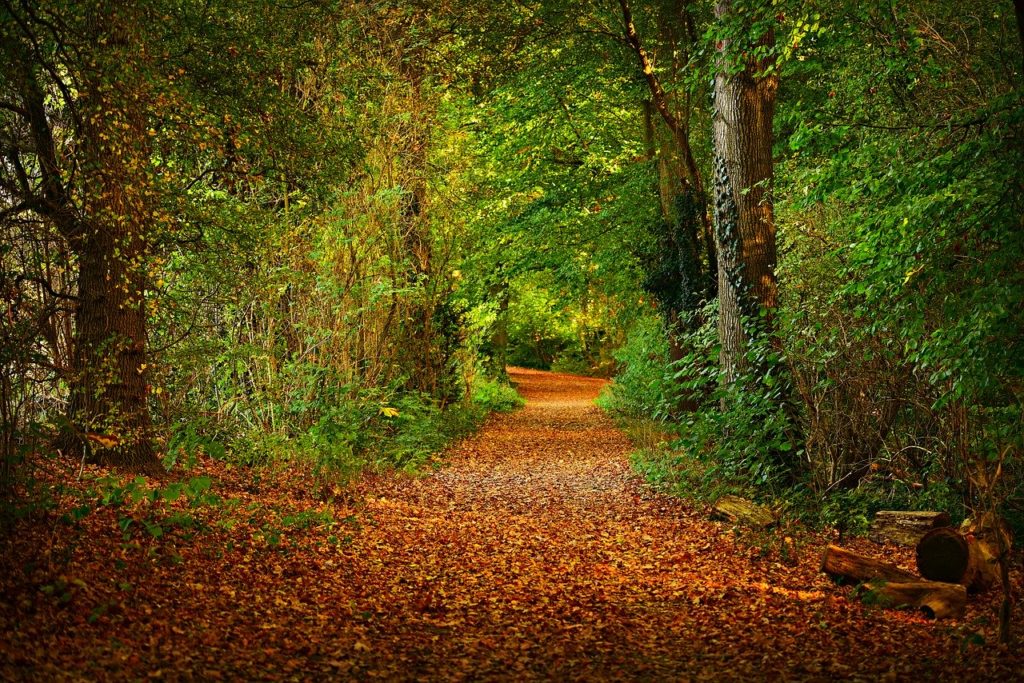
By John Hosford from The Weekend Garden Centre
We welcome the arrival of June and and what we hope will continue to be long, sunny, summer days. The extra light and warmth encourages the garden to put on an exuberant burst of growth. Now that we have arrived in June, it is safe to plant outside the more tender flowers and vegetables, which would have been vulnerable to frost and cold weather up until May.
Jobs for the month
If you still have summer bulbs such as Dahlias, Begonias, Gladioli and Nerines left unplanted, do get them into the ground without delay. Nerines will want a sunny, well-drained position. Don’t plant too deeply – keep the neck of the bulb proud of the soil. Stakes and support need to be in place for Dahlias, which should be protected against slug damage. Prepare the ground well before planting Dahlias – the addition of well rotten farmyard, stable manure or Gee-ip is beneficial.
Spring bulbs: Allow daffodils, Narcissi,Tulips and other spring bulbs to die down naturally. Don’t be tempted to cut down or tie back foliage prematurely. Feed all flowered spring bulbs while still green and before they die back into the ground with a high potash liquid feed.
Hoe borders, vegetables, frequently with a good sharp, Dutch hoe on warm, dry days. Hoe early in the day and allow the sunshine and/or wind to dry out or scorch the weeds during the heat of the day.
When you get a calm, sunny day put up your hanging baskets, window boxes and patio containers. Make sure chains of the hanging baskets are in a good and safe condition. Replace window boxes that have become brittle or broken. Newly planted window boxes should be secured inside a strong wooden of metal framework especially window boxes above the ground floor or above. There is still time to plant up containers, which will provide a display from summer well into the autumn. Containers that have been planted up with a month or more should be fed weekly with a liquid fertiliser such as tomato food.
Roses
Roses should get an organic summer feed this month. Keep an eye out for infections of blackspot, mildew and rust and remove suckers at the source of origin. Plant container grown roses. Water recently planted roses, keeping water off the flowers and foliage.
Prune spring flowering shrubs.
Glasshouse
Make sure there is shading in place in your glasshouse to protect against scorch on your plants and overheating in your glasshouse. Ventilate the glasshouse well on warm days, perhaps considering an automatic vent opener if you are away from the house all day. If you are putting in a new glasshouse do consider the amount of ventilation provided – consider provision of both roof and side louvre ventilation.
Vegetable Garden
Frost tender and susceptible vegetable plants such as outdoor tomatoes, cucumbers, courgettes, squashes and vegetable marrows, pumpkins, runner beans, French beans and sweet corn can all be planted now into their final quarters.Protect from drying winds and slug damage and keep well-watered until established.
Sow or plant successional sowings of lettuce, salad leaves, kale, brocolli, beetroot and spinach, peas, carrots, swedes, turnips, kohl rabi. Swedes, carrots and parsnips make great crops for harvesting throughout the winter. Protect soft tender crops from slug, pigeon and rabbit damage. Caterpillar and flea beetle damage can be minimised with protective, high porosity mesh.
Protect brassicas (cabbage family) from cabbage root fly by placing a cabbage collar at the base of each plant. These can be bought off the shelf in packs of 25/30 in garden centres or shops. Alternatively you can make your own from old carpet or cardboard. The cabbage collar should be placed in situ as soon as possible after planting. The cabbage root fly eats away at the hair roots of the cabbage plant causing it to wilt and die. Take precautionary measures in plenty of time.
If your space is at a premium why not grow some vegetables or fruit in a container. Consider carrots, lettuce, salad leaves, radishes, herbs, strawberry (both conventional and the smaller fruited alpine varieties). Tomatoes, cucumbers, courgettes and peppers are all suited to growing in deeper containers or pots or indeed grow-bags. Always use fresh compost.
Lawn Care
Summer mowing at frequent weekly or twice weekly intervals will now be in place. Use an organic lawn feed to bring out the full potential in your lawn and keep it looking its very best. Keep the edges trimmed frequently. Water/ irrigate in dry weather. Add mowings to the compost heap making sure that the lawn hasn’t been treated with a hormone weedkiller.
Fruit Garden
Pick strawberries, raspberries, red and white currants. Harvest cherries too! Watch your cherries because if you are not careful the birds will race you to the ripening fruit. Net against birds attacking and raiding the fruit.
Thin apples if there is a heavy set of fruit. Wait until after the June drop for the final thinning. Thin pears if fruit set is heavy. Net soft fruit against birds.
Straw down strawberries to keep weed-free and keep the fruit clean as they ripen.
Thin gooseberries and use thinnings for cooking.summer prune at end of June.
Summer prune bus and cordon red and white currants.
Train in new shoots of blackberries and hybrid berries.
Watch for sawfly and caterpillar damage on gooseberries.
Garden Visiting in 2020
Due to Covid-19 lockdowns, gardens open to the public will have amended hours.
Check out their specific websites, Garden Trail websites, Gardening Pages/Diaries of the National and Provincial newspapers.
Prior to opening some public gardens are facilitating virtual garden tours online.
Details on their own specific websites or via the leading gardening magazines or at local tourist offices.
Do get an up-date today before you travel.
Enjoy your gardens this summer.


